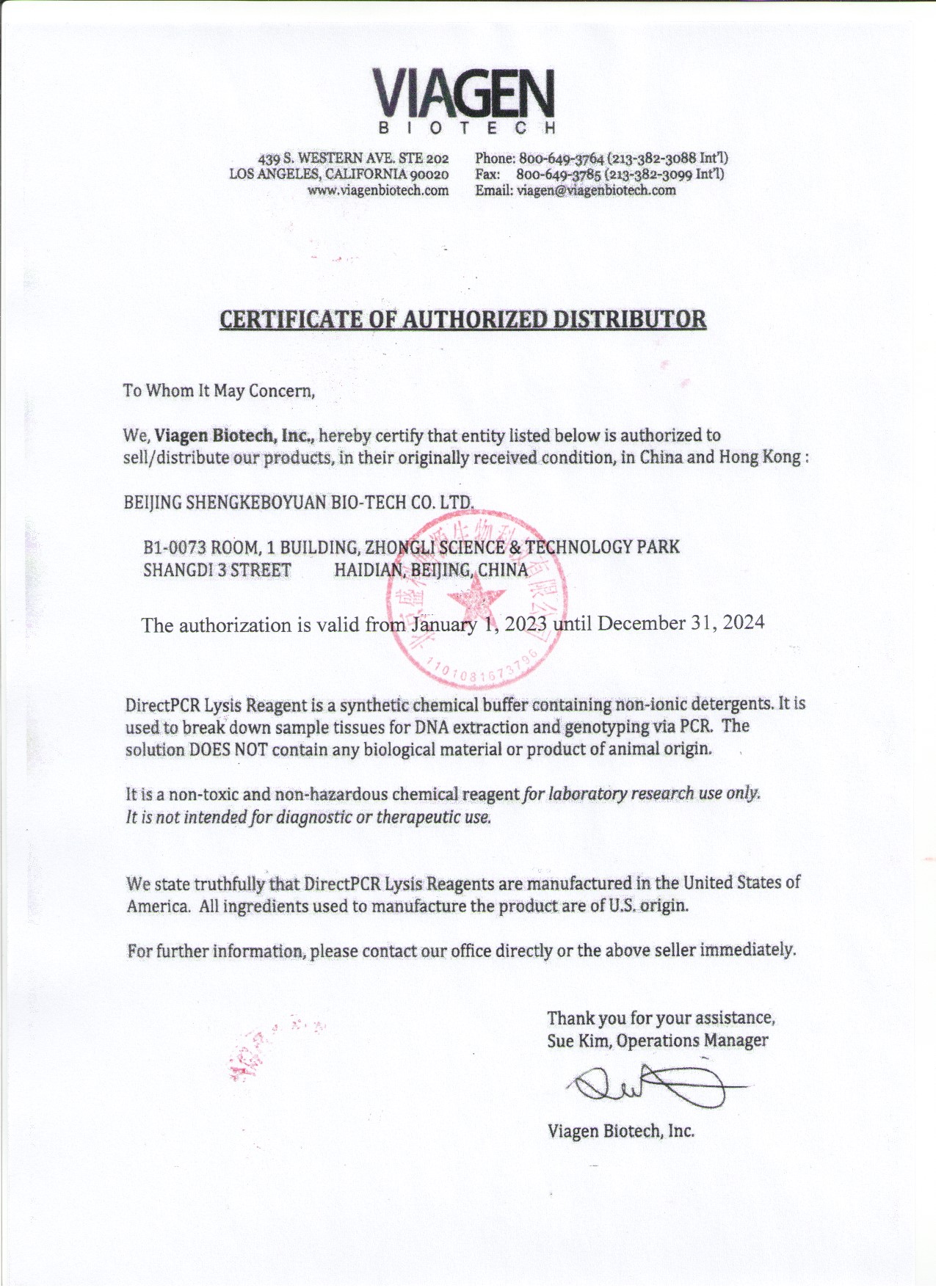商家描述
商家资质信息
产品评价(0)
1. For 0.5 cm tail, add 200–300 µl DirectPCR Lysis Reagent (Tail) containing freshly prepared 0.2-0.4 mg/ml Proteinase K (Sigma, cat # p6556, not included). Proteinase K is stable in DirectPCR reagents for ~24 hrs. If a small number of tails are processed, and therefore it is difficult to weigh Proteinase K powder, use genomic PCR-quality Proteinase K solution (Viagen, cat #501-PK) at 0.5-1.0 mg/ml (25-50 µl Proteinase K solution per 1 ml DirectPCR reagent). See Table 1 for starting conditions. NOTE: Although 200 µl DirectPCR is usually sufficient for complete lysis of 0.5 cm tail, application of 250-300 µl yields more reproducible results because of better mixing efficiency. Compare several different volumes of DirectPCR reagents for best performance. If tails are not mixed well with solutions, use 0.75 ml tubes. 2. Rotate the tubes in rotating hybridization oven at 55°C for 5-6 hrs or until no tissue clumps are observed. If necessary, rotation can be allowed overnight without loss of efficacy. Complete lysis is important. Since some tails may not be in contact with solutions, re-position once the tails by shaking the bottles containing tubes, preferentially after 2-3 hrs. NOTE: Rotating hybridization oven performs better than rocking plate. Use 0.75 cm tubes for less than 200 µl of DirectPCR Reagent. DNA fragmentation by prolonged rotation will not influence significantly PCR performance. Use roughly proportional volume of DirectPCR Lysis Reagent for different sized samples. 3. Incubate crude lysates at 85°C for 45 min by floating the whole rack (containing tubes) on a water bath. (Optional) Precipitate hairs by centrifuging for 10 sec before step 4. Crude lysates may be stored at -20°C for 1 year (or at 4°C for 1 week) without losing efficacy. 4. Use 0.5-1.0 µl of lysate for 50 µl PCR reaction. Eppendorf Hotmaster Taq Polymerase (cat# 954-14-5018), Sigma JumpStart Taq DNA Polymerase (cat# D9307), or Qiagen HotStar Taq DNA polymerase (cat# 203203) is recommended for PCR. Rescue of DNA: DNA in crude lysates can be rescued for further analysis. Add NaCl to a final concentration of 250 mM, and then add 0.7 volume of isopropanol. DNA will form precipitates. Centrifuge at 4°C for 2 min, discard supernatant, wash DNA with 1 ml 70% EtOH, and dissolve DNA in 50 µl 10 mM Tris-HCl (8.0). Use 1 µl for PCR.
 会员登录
会员登录.getTime()%>)
 购物车()
购物车()


 成功收藏产品
成功收藏产品
